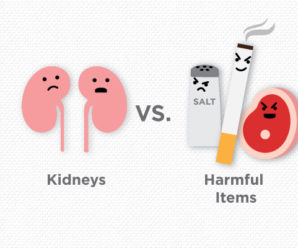
Every woman will have a unique menopause experience. Some can sail smoothly through the transition while others may have debilitating symptoms like hot flashes, mood swings, and sleep problems – and the rest are nestled in between. Depending on your situation, symptom management methods like hormone replacement therapy (HRT) and others can be personalized to your individual needs, and are best discussed and chosen with your women’s health care provider. If you’re considering HRT, this article will help you learn more about its potential benefits and risks.
Below, we’ll dive deeper with Dr. Ken Ostermann, OB/GYN and Urogynecologist with Marshfield Clinic Health System, to answer questions about hormone replacement therapy to help you decide whether it is an avenue to explore for your menopause journey.
What are some potential benefits of hormone replacement therapy?
Ostermann said that the biggest reason a woman and her health care provider may choose HRT is for its symptom reduction properties. Estrogen has been shown to be an effective treatment for various symptoms of menopause, most notably hot flashes and vaginal dryness.
“Hormone replacement therapy is also shown to help protect against osteoporosis and possibly colon cancer, but it’s not prescribed for preventive reasons alone,” Ostermann said. “Thus, the primary benefit boils down to an improved quality of life if your menopause-related symptoms are negatively impacting your daily activities.”
Are there different types of HRT?
Ostermann said that there are different types of hormone replacement therapy. “Like any medical intervention, the type of HRT should be prescribed with your health history in mind,” Ostermann said. There are two basic kinds:
- Estrogen-only therapy (ET): Used for women who have had a hysterectomy. Estrogen is the primary hormone at work in reducing menopausal symptoms.
- Estrogen-plus-progestin therapy (EPT): Estrogen alone can increase the risk of endometrial cancer in women with a uterus, so progestin is added to protect against this. EPT is not shown to raise endometrial cancer risk.
Women using EPT hormone replacement therapy have another choice: continuous vs. sequential EPT. Continuous means the same dose is taken each day and is less likely to come with monthly bleeding. Sequential means that different doses of various hormones are administered throughout the month, leading to a cycle more closely resembling an ordinary menstrual cycle. The continuous vs. sequential debate is a decision to talk about with your women’s health care provider.
How is hormone therapy administered?
Estrogen and/or progestin can come in a variety of forms and are available in both natural and synthetic hormones. They can be categorized into four main types:
- Oral medication (usually taken once a day)
- Skin patches (usually worn on the lower stomach)
- Topical applications (creams, gels, or sprays applied to the skin)
- Vaginal delivery (suppositories, rings, or creams for women looking to treat vaginal symptoms only)
“The non-oral methods may be safer for those with liver problems, but as a whole, these methods need to be officially studied in greater depth before they can be ranked more thoroughly for safety and efficacy,” Ostermann said.
If you have a preference, Ostermann recommends that you make it known to your provider.
Does HRT have risks?
“HRT does have risks, which is why it’s important to carefully evaluate hormone replacement therapy for menopause in the context of each woman’s situation,” Ostermann said.
Specifically, the risks of stroke and blood clots are raised by both ET and EPT, and a higher risk of breast cancer is associated with EPT. Some studies associate HRT with an increased risk of cardiovascular disease as well.
It’s worth noting that these risks may vary by age. Women who start hormone therapy when they’re older than 60 or beyond ten years from the onset of menopause could face more issues than younger women who start it sooner.
Who might be a good candidate for HRT?
Hormone replacement therapy isn’t for everyone, making it wise to learn who might be best helped by HRT. Ostermann notes that evidence points toward ideal candidates being women who:
- Experience moderate to severe hot flashes, night sweats, and vaginal dryness.
- May have tried other treatments or lifestyle changes that didn’t alleviate symptoms.
- Are under 60 years old.
- Started menopause less than 10 years ago.
- Do not already face elevated risks of stroke, clots, breast cancer, or heart attack.
If you fit these criteria, the next step is digging into the topic even further with your women’s health provider who can recommend the best menopause treatment option to help you find relief.







Leave a Reply